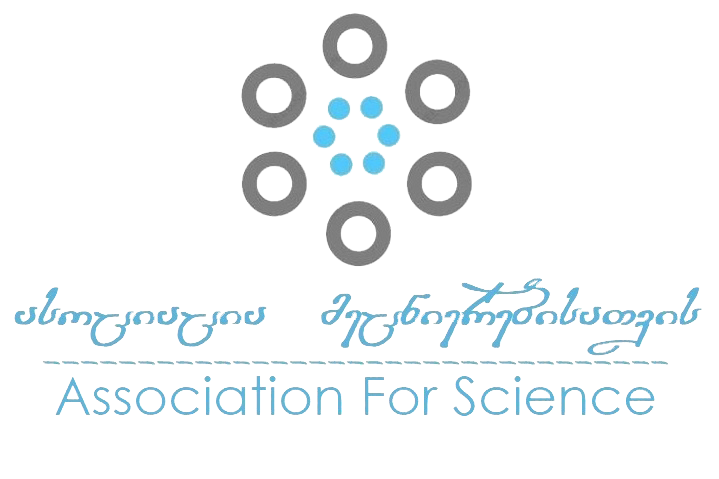A Single Problem of the Psychology of Art in the Works of Edgar Poe and Galaktion Tabidze
DOI:
https://doi.org/10.52340/sou.2023.21.27Keywords:
Psychology of Art, Edgar Allan Poe, Galaktion Tabidze, Creative Parallels, MetaphorAbstract
There are striking similarities in the concepts of the great American author Edgar Allan Poe and the brilliant Georgian king-poet Galaktion Tabidze, which indicate the high spiritual values and similar attitudes towards the world of these two poets and great men.
In the writings of both poets, special attention is paid to the concepts of the madman and the insane.This metaphorical application refers not to clinical insanity but to the elevation of the artist above the possibilities of ordinary man, to a higher level of consciousness. Goethe, Grigol Robakidze, Edgar Poe, Galaktioni, Terenti Granelli understood the notion of the insane as synonymous with superior perception, positive energy and inspiration. But madness, insanity acquired its odious content in the totalitarian Soviet empire and artists serving justice and freedom were referred to as madmen. An example of this is the declaration of Terence Granelli as mentally ill. In this regard, the Soviet political system did not spare Galaktion Tabidze and created the image of a “mad poet” from him.
The ingenious aesthetics of the “mad poet” can also be seen in the work of the American poet Edgar Allan Poe. He is a spiritual ally of Galaktion Tabidze and Terence Granelli. There is a particularly great similarity in the work of Edgar Poe and Galaktion.
This scientific study examines the parallels in the legacy of these two great creators from the perspective of a metaphorical understanding of one specific concept - the madman, the insane.
References
ალშვანგი (1963): ალ. ალშვანგი, ბეთხოვენი, მთარგმნელი კ. ბერიშვილი, რედაქტორი რ. ჯაფარიძე, თბილისი. გამომცემლობა „ნაკადული“;
ესეები (1989) ესეები, ინგლისურიდან თარგმნეს პაატა და როსტომ ჩხეიძეებმა. თბილისი, გამომცემლობა „მერანი“;
გამსახურდია (1995): ზვიად გამსახურდია, დილემა კაცობრიობის წინაშე, (ამონარიდი), სარედაქციო კოლეგია მიხეილ (გელა) სალუაშვილი, ბეჟან შერგელაშვილი, კობა მახაური, თბილისი, გამომცემლობა „ხმა ერისა“, თბილისი;
კვიტაიშვილი (2012) ემზარ კვიტაიშვილი. პოსეიდონის საუფლოში („ქალაქი წყალქვეშ“), კრებული გალაკტიონოლოგია, ტ. 6. რედაქტორი თეიმურაზ დოიაშვილი, შოთა რუსთაველის ქართული ლიტერატურის ინსტიტუტი, გალაკტიო-ნის კვლევის ცენტრი, ლიტერატურის ინსტიტუტის გამომცემლობა, თბი-ლისი;
ლომბროზო (2009) Ломброзо, Чезаре. Гениальность и помешательство. перевод с итальянского Г. Тетюшиновой, Москва, Издательство „РИПОЛ классик“;
პო (1911): ედგარ პო ოთხ ტომად, ტ.II, თარგმანი ინგლისურიდან კონსტანტინე ბალმონტის, მოსკოვი, რუსულ ენაზე;
პო (2001): ედგარ პო, რჩეული ლირიკა, = Selected verse, რედაქტორ შემდგენელი ლეილა გამსახურდია, კოტე ჯანდიერი. პირველი გამოცემა. გამომცემლობა „დიოგენე“, თბილისი;
პო (2011) ედგარ პო, მოთხრობები, თარგმანი ზაურ კილაძის, გამომცემლობა „პალიტრა L“, თბილისი;
ტაბიძე (1993) გალაკტიონ ტაბიძე, ხუთ ტომად, ტ I. ლექსები. შემდგენლები: ხუტა გაგუა, ჯანსუღ ღვინჯილია, ვახტანგ ჯავახაძე. გამომცემლობა „საქართველო“, თბილისი;
ჯავახაძე (1991): ვახტანგ ჯავახაძე, უცნობი, გალაკტიონ ტაბიძე, გამომცემლობა „ნაკადული“. თბილისი;
ჯავახაძე (2008) ვახტანგ ჯავახაძე. ისევ გალაკტიონი, კრებული გალაკტიონოლოგია, ტ. 4. კრებული ეძღვნება გალაკტიონის სამწერლო ასპარეზზე გამოსვლის 100 წლისთავს, საქართველოს მეცნიერებათა აკადემია, შოთა რუსთაველის ქართული ლიტერატურის ინსტიტუტი, გალაკტიონის კვლევის ცენტრი.



